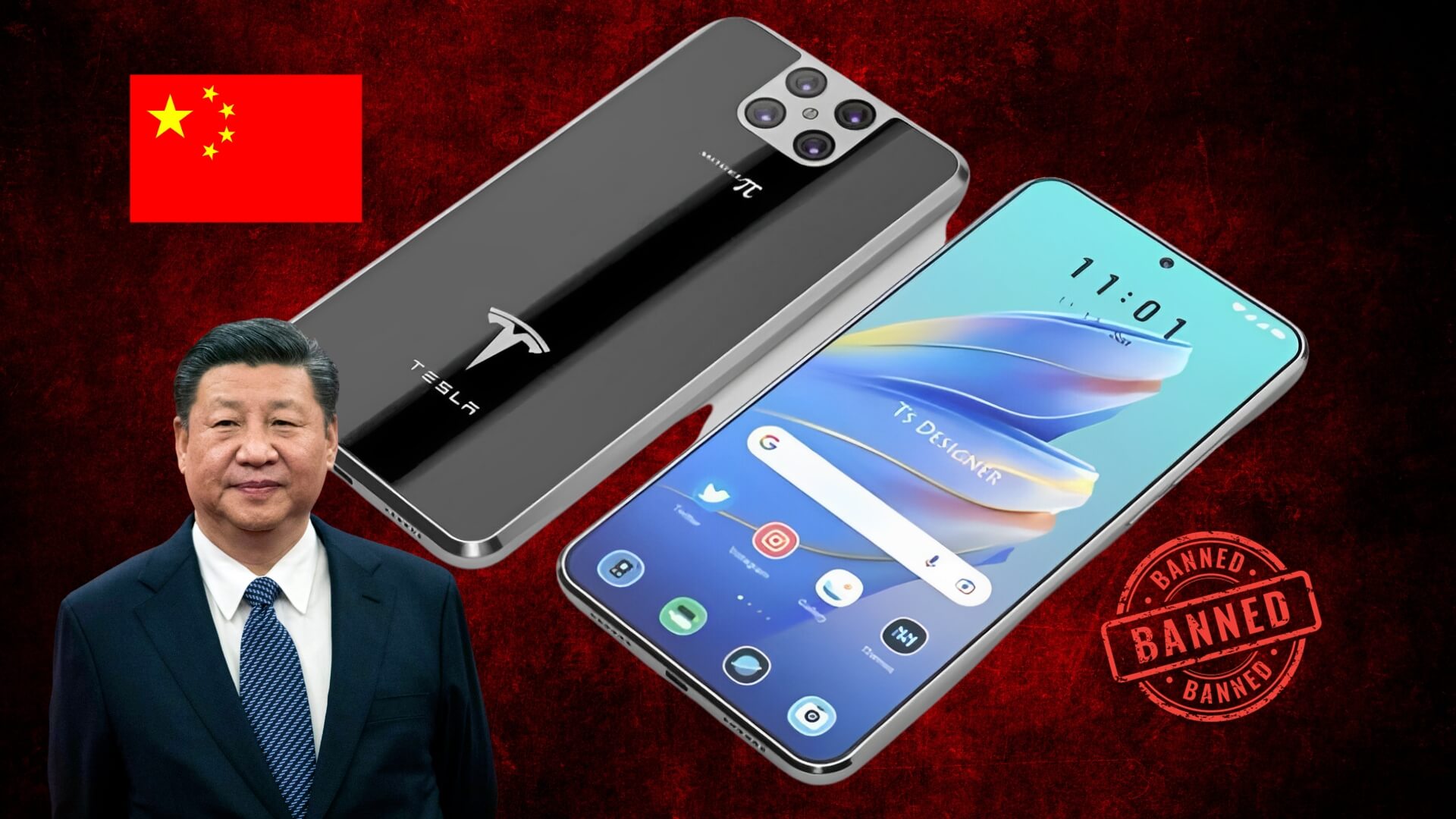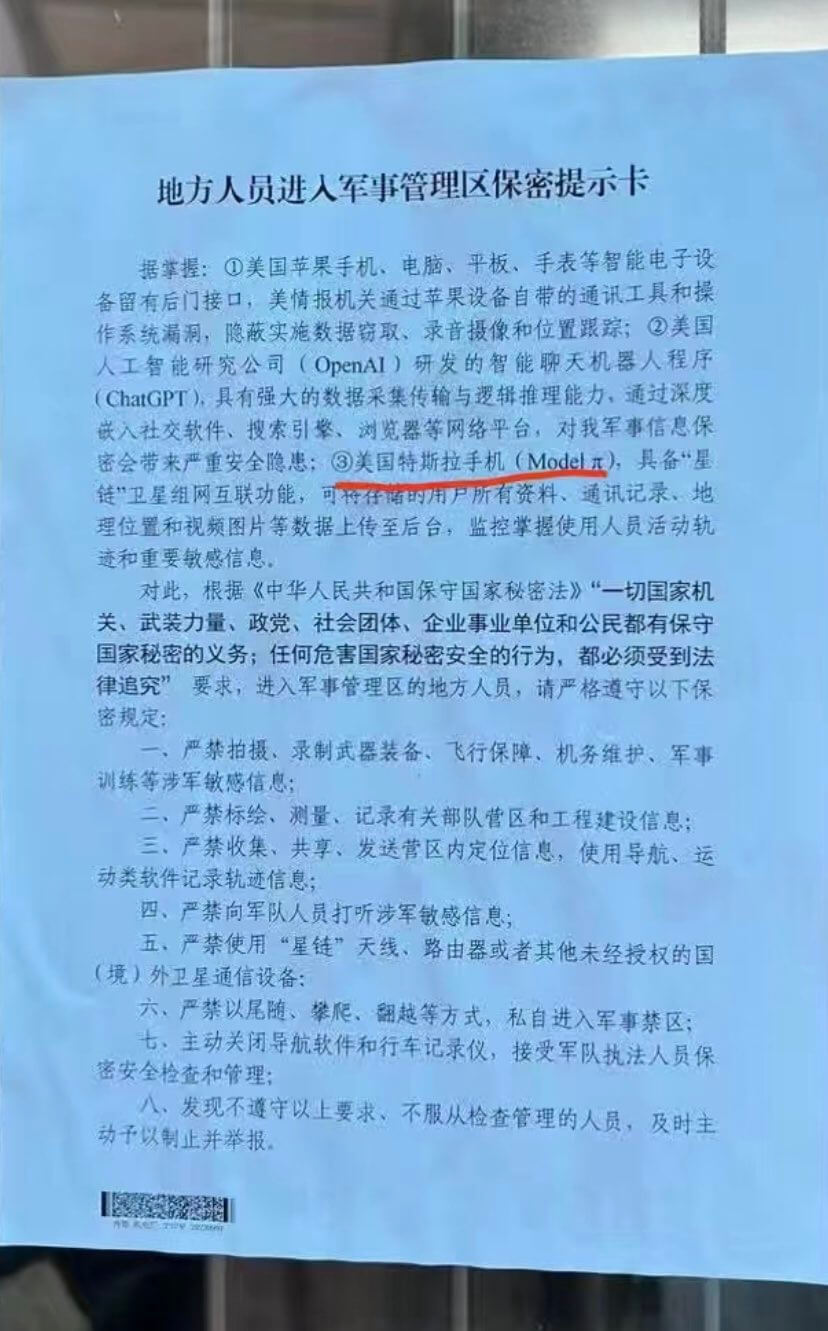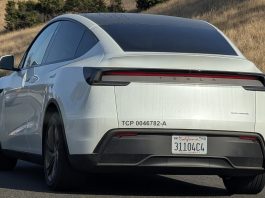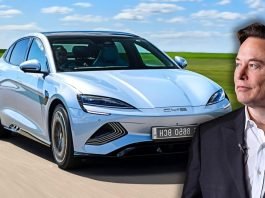In a development that can only be described as surreal, Tesla’s fictional smartphone, the “Model Pi,” has found itself on a list of devices banned in China’s military administrative zones. The intriguing part? The smartphone doesn’t even exist, it’s a figment of social media imagination. This incident not only adds a layer of complexity to the already intricate relationship between technology and geopolitics but also raises questions about the level of scrutiny and misinformation surrounding foreign tech companies in China.

Table of Contents
Tesla Pi Phone: Notice That Started It All
A notice issued by Chinese authorities has recently stirred conversations and raised eyebrows in tech circles. The document outlines specific guidelines about what electronic devices are permitted within military administrative zones in China. The list of banned devices is particularly noteworthy, as it includes all Apple products, the intelligent chat robot program ChatGPT, and surprisingly, Tesla’s fictional smartphone, the Pi Phone.
The Model Pi is an interesting addition to this list for several reasons. First and foremost, it’s a device that doesn’t actually exist, it’s a creation of social media buzz and speculation. Despite its fictional status, the notice drafter seems to believe that the Model Pi is real and poses a significant security risk. The document goes as far as to claim that the hypothetical smartphone is capable of connecting to Starlink, Elon Musk’s ambitious satellite internet project, thereby making it a potential security concern.
This inclusion not only highlights the extent of misinformation but also raises questions about the level of scrutiny that foreign tech products face when it comes to Chinese military and governmental regulations.
I understand there’re rules in 🇨🇳 regarding what’s allowed or what’s not allowed on government or military affiliated premises. According to this reminder notice of confidentiality, the following devices are not allowed in military admin zones: all Apple products, ChatGPT and… https://t.co/4S3hXppTSU pic.twitter.com/NJwdyRm7BE
— Ray (@ray4tesla) September 29, 2023
Translation of the Chinese Notice
The Chinese military notice, titled “Confidential reminder card for local personnel entering military administrative areas,” delves into specific concerns regarding the use of certain electronic devices within military zones. The notice focuses on three main points that warrant attention:
Apple Devices
The notice claims that smart electronic devices from Apple, including phones, computers, tablets, and watches, have backdoor interfaces. These interfaces are allegedly exploited by U.S. intelligence agencies to carry out covert operations like data theft, recording, camera surveillance, and location tracking.
ChatGPT
ChatGPT developed by OpenAI is also listed as a security concern in the notice. While the document doesn’t go into detail about why ChatGPT is considered risky, its inclusion suggests that intelligent chat robot programs are under scrutiny for potential security vulnerabilities.
Tesla Model Pi (Tesla Pi Phone)
Perhaps the most intriguing point is the inclusion of Tesla’s fictional smartphone, the Model Pi. Despite being a product of social media imagination, the notice claims that the Model Pi is capable of connecting to Starlink. This is considered a major security concern, as Starlink is an international satellite communication system developed by SpaceX, another venture led by Elon Musk.

The notice serves as a stark reminder of the heightened security measures and the level of scrutiny that foreign technology faces in China, even when the technology in question doesn’t actually exist.
The Irony of the Situation
In a world where technology is advancing at an unprecedented rate, it’s not uncommon for rumors and speculations to circulate about upcoming devices and innovations. However, the inclusion of Tesla’s Pi Phone in a list of banned devices for Chinese military zones takes the cake for irony.
The Pi Phone exists solely in the realm of social media chatter, yet it has been elevated to the status of a security threat by a formal governmental notice. This is not just a simple oversight; it’s a glaring example of how misinformation can have real-world implications. The notice doesn’t just mention the Model Pi, it goes a step further to claim that the non-existent device is capable of connecting to Starlink, thereby posing a significant security risk.
This situation serves as a humorous yet concerning illustration of how the lines between reality and fiction can blur, especially when it comes to the complex world of technology and security. It also raises questions about the credibility and thoroughness of the processes used to evaluate the security risks associated with technology, particularly foreign technology, in China.
Implications for Tesla and Tech Companies
The curious case of Tesla Pi Phone being listed as a security concern in China is more than just an amusing anecdote, it has broader implications for Tesla and other foreign tech companies operating in the country.
China is known for its stringent regulatory environment, especially concerning technology and data security. The inclusion of a non-existent device in an official notice highlights the unpredictable and sometimes confusing landscape that foreign companies must navigate. It underscores the need for these companies to be extra vigilant in understanding and complying with local laws and regulations.
The incident also raises questions about the credibility of the processes used to evaluate the security risks associated with foreign technology. If a fictional device can make it onto a list of banned items, what does that say about the reliability of such evaluations? This could potentially erode trust between foreign tech companies and Chinese authorities, making an already complex relationship even more challenging.
Tesla has been making significant inroads in the Chinese market, and incidents like these could have a ripple effect on its reputation and market access. While the Pi Phone situation might be laughed off as a bizarre mistake, it serves as a cautionary tale for other tech companies that might be considering entering or expanding in the Chinese market.
The incident serves as a stark reminder that foreign tech companies must be prepared for unexpected challenges when operating in China. It’s not just about understanding the market and consumer behavior, it’s also about navigating a complex and sometimes opaque regulatory environment.
Conclusion
The curious case of Tesla’s Pi Phone being banned in China serves as a compelling lens through which to examine the intricate relationship between technology and geopolitics. In an era where technological advancements are shaping global dynamics, this incident offers a unique, albeit ironic, perspective on how misinformation and regulatory complexities can intersect to create real-world implications.
As for the Tesla Pi Phone, its premature “ban” before even existing is a testament to the unpredictable and often surreal challenges that technology companies may face in today’s global landscape. While the incident may be a source of amusement for some, it also serves as a cautionary tale for Tesla and other tech companies navigating the complex regulatory waters in countries like China.



